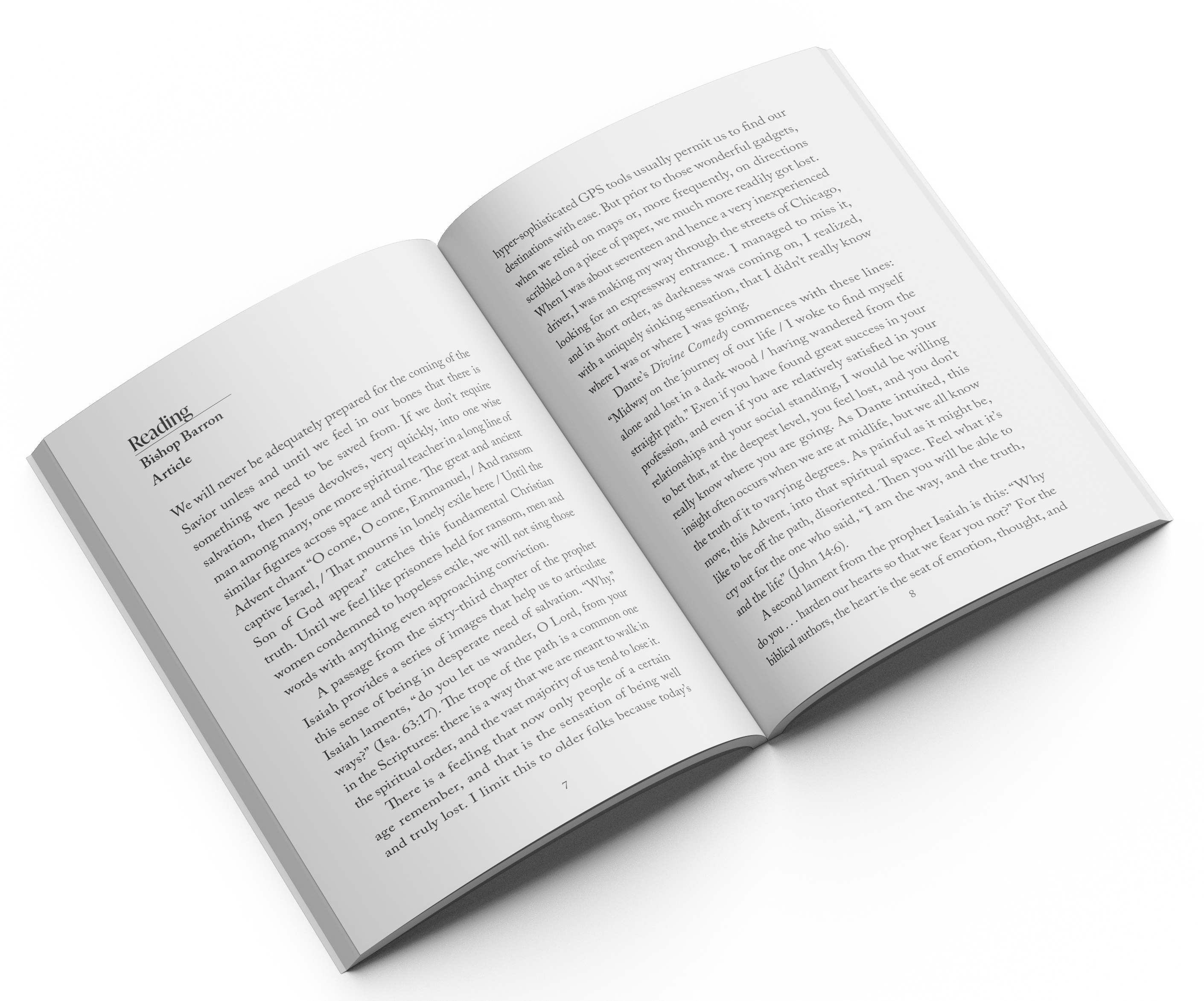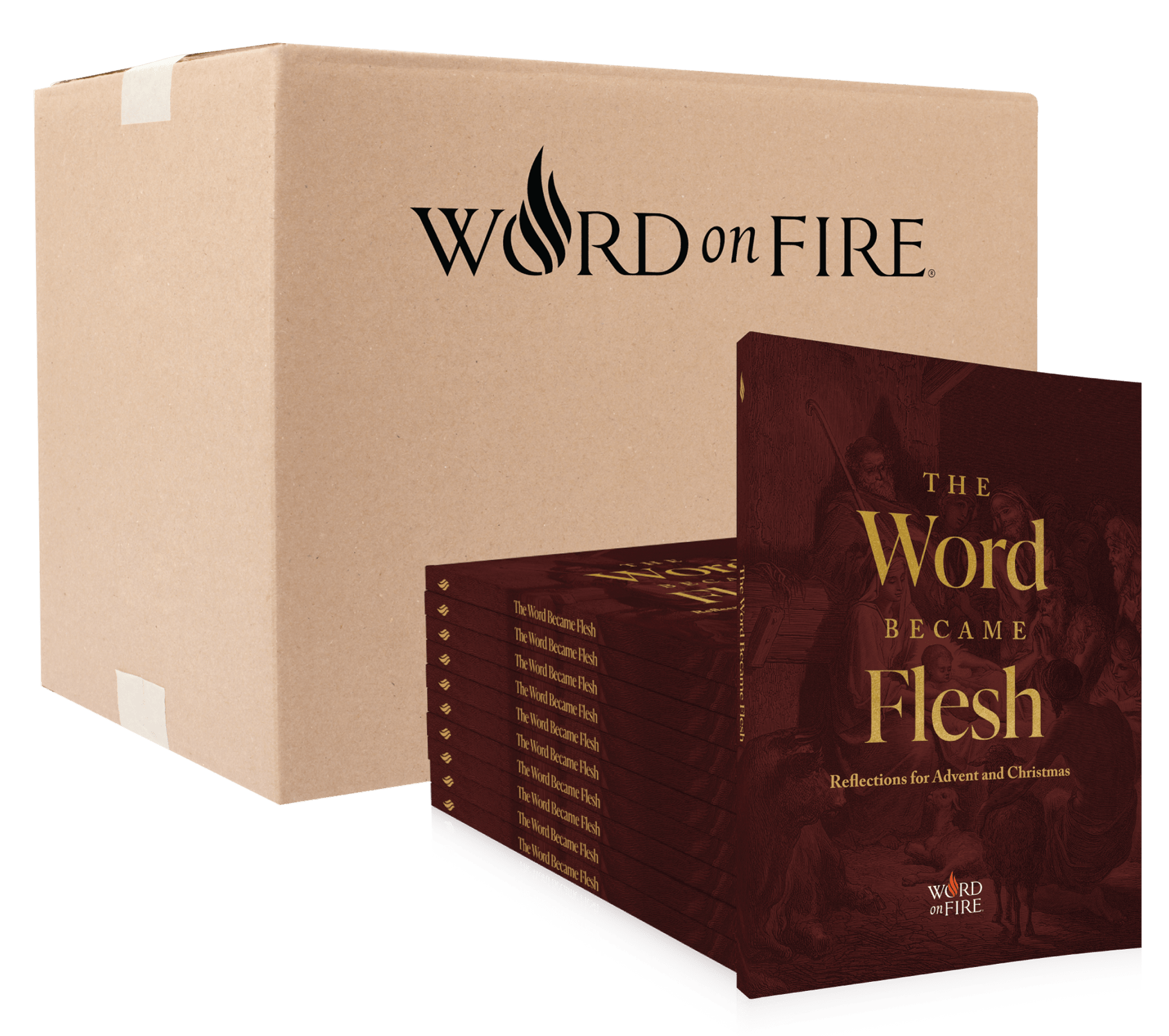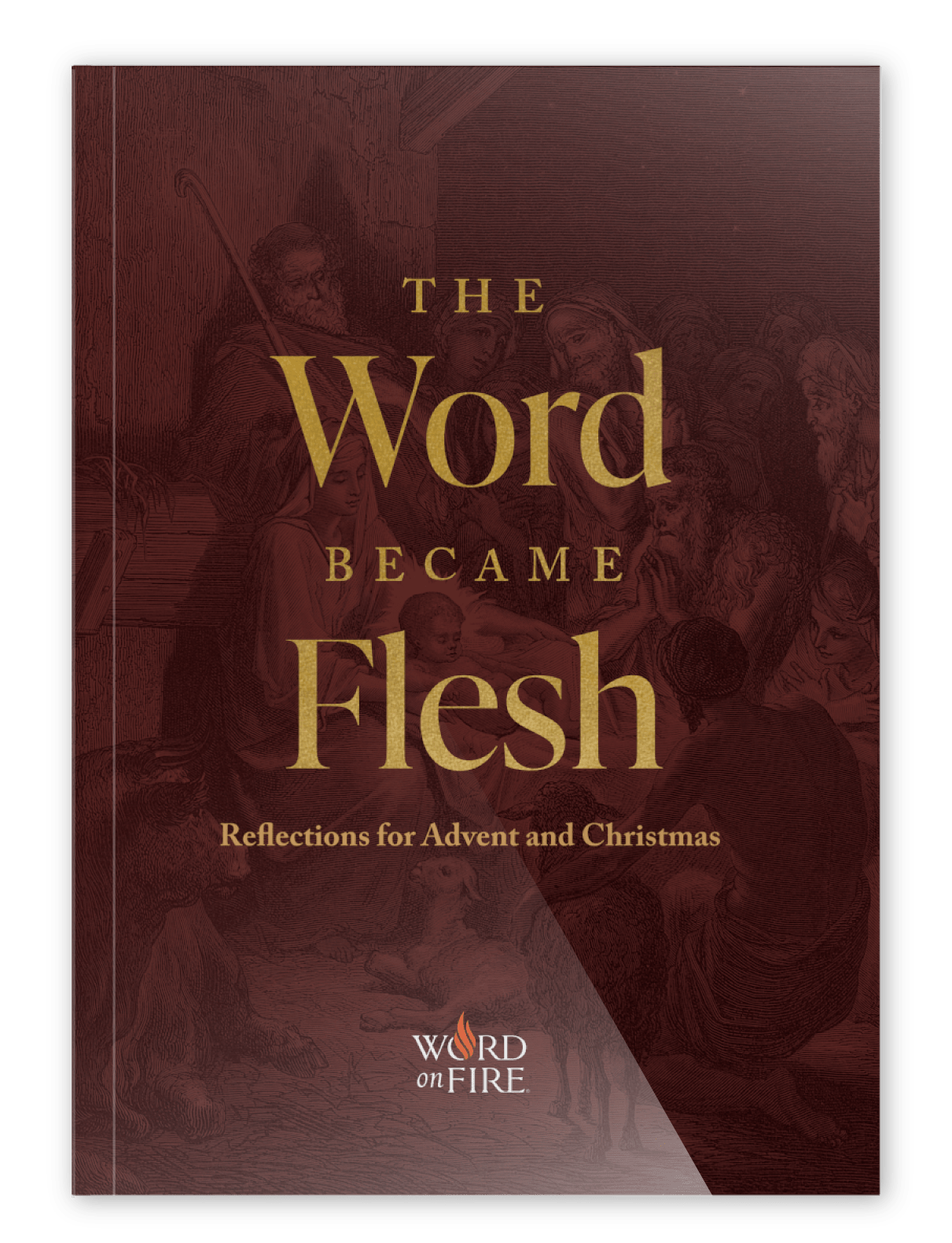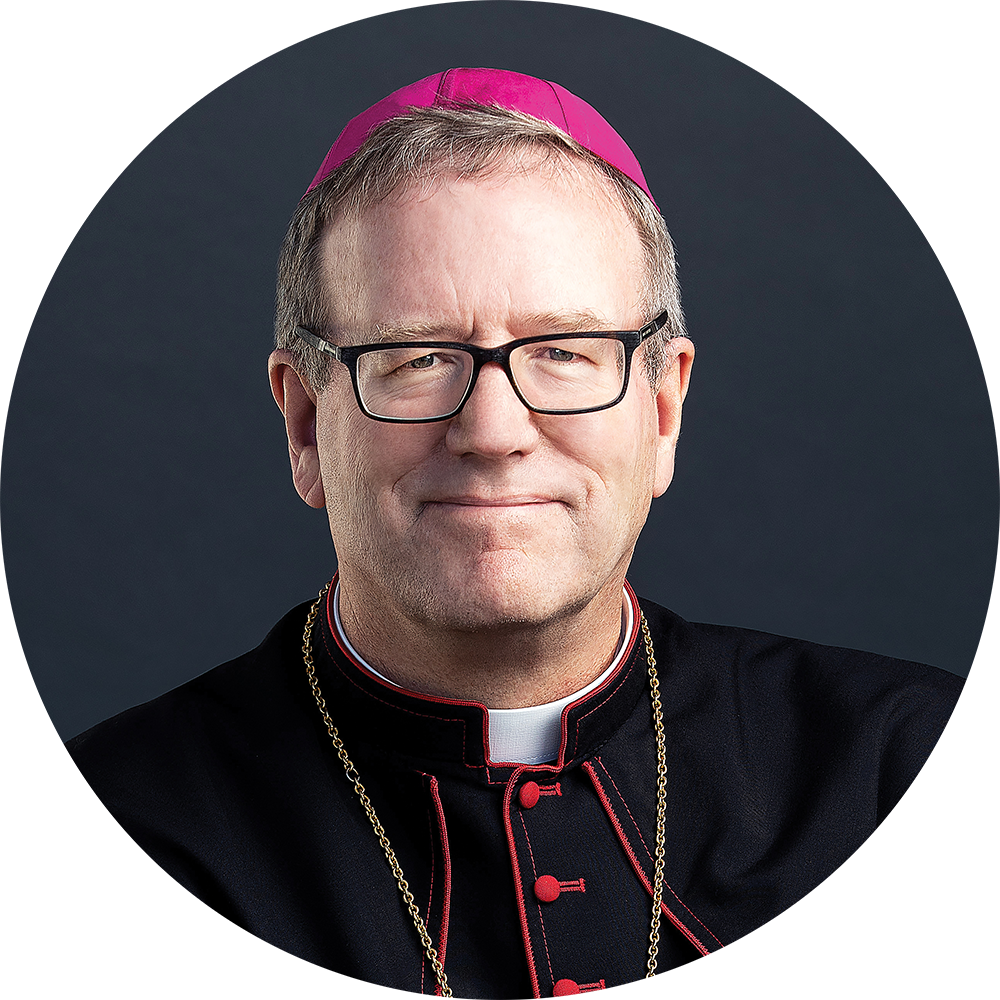

Questions? Need help ordering?
Email us at sales@wordonfire.org
or call 866-928-1237.
or call 866-928-1237.


CUSTOM JAVASCRIPT / HTML
Questions? Need help ordering?
Email us at sales@wordonfire.org
or call 866-928-1237.
or call 866-928-1237.
CUSTOM JAVASCRIPT / HTML
“The Word became fleshand lived among us.”
“The Word became flesh and lived among us.”
JOHN 1:14

“The Word became fleshand lived among us.”
“The Word became flesh and lived among us.”
—JOHN 1:14
“The Word became flesh and lived among us.” These words of St. John the Evangelist express the foundational mystery of the Catholic faith, which Christians around the world contemplate and celebrate every year during the Advent and Christmas seasons: the Incarnation.
In this new book from Word on Fire, readers are offered a week-by-week guide through these sacred seasons with a series of reflections on the Messiah, the Annunciation, the Incarnation, the Journey to Bethlehem, the Nativity, and the Holy Family.
Featuring key passages from Scripture, extended readings from Bishop Robert Barron, and hymns, poetry, prayers, and additional reflections from across two thousand years of Catholic tradition, The Word Became Flesh is a perfect companion guide for parishes, families, and individuals longing for a deeper encounter with Christ during Advent and Christmas.
The Word Became Flesh isn’t only for the upcoming Advent and Christmas seasons. It can be used every year!
What You'll Find Inside

What You'll Find Inside
-
-
-
-
An introduction and conclusion from Bishop Robert Barron
Key passages for Advent and Christmas from Sacred Scripture
Extended readings from Bishop Robert Barron
Brief theological and spiritual reflections from many of the heroes of Word on Fire, including Fulton Sheen, St. Athanasius, St. Thomas Aquinas, St. Augustine, and more
Prayers from St. John Henry Newman, St. Teresa of Kolkata, St. Catherine of Siena, and more
-
-
-
The “O Antiphons” and the Angelus and Memorare prayers
Classic hymns like Veni, Veni, Emmanuel, Alma Redemptoris Mater, and Adeste Fidelis in both Latin and English
Six Advent and Christmas poems from G.K. Chesterton
Additional poems from Thomas Merton, Dante, St. John of the Cross, Gerard Manley Hopkins, Thérèse of Lisieux, and Paul Claudel
Need More Copies?
For friends, family, parishes, schools, and ministry leaders...

Table of Contents
Introduction
The First Week of Advent: The Messiah
The Second Week of Advent: The Annunciation
The Third Week of Advent: The Incarnation
The Fourth Week of Advent: The Journey to Bethlehem
Christmas Day: The Nativity
The Christmas Season: The Holy Family
Conclusion
Additional Prayers
Notes

WordOnFire.org | WordOnFire.Institute | Privacy | Contact
Word on Fire © 2022 - All Rights Reserved
Word on Fire Catholic Ministries is a registered 501(c)(3) non-profit ministry.




